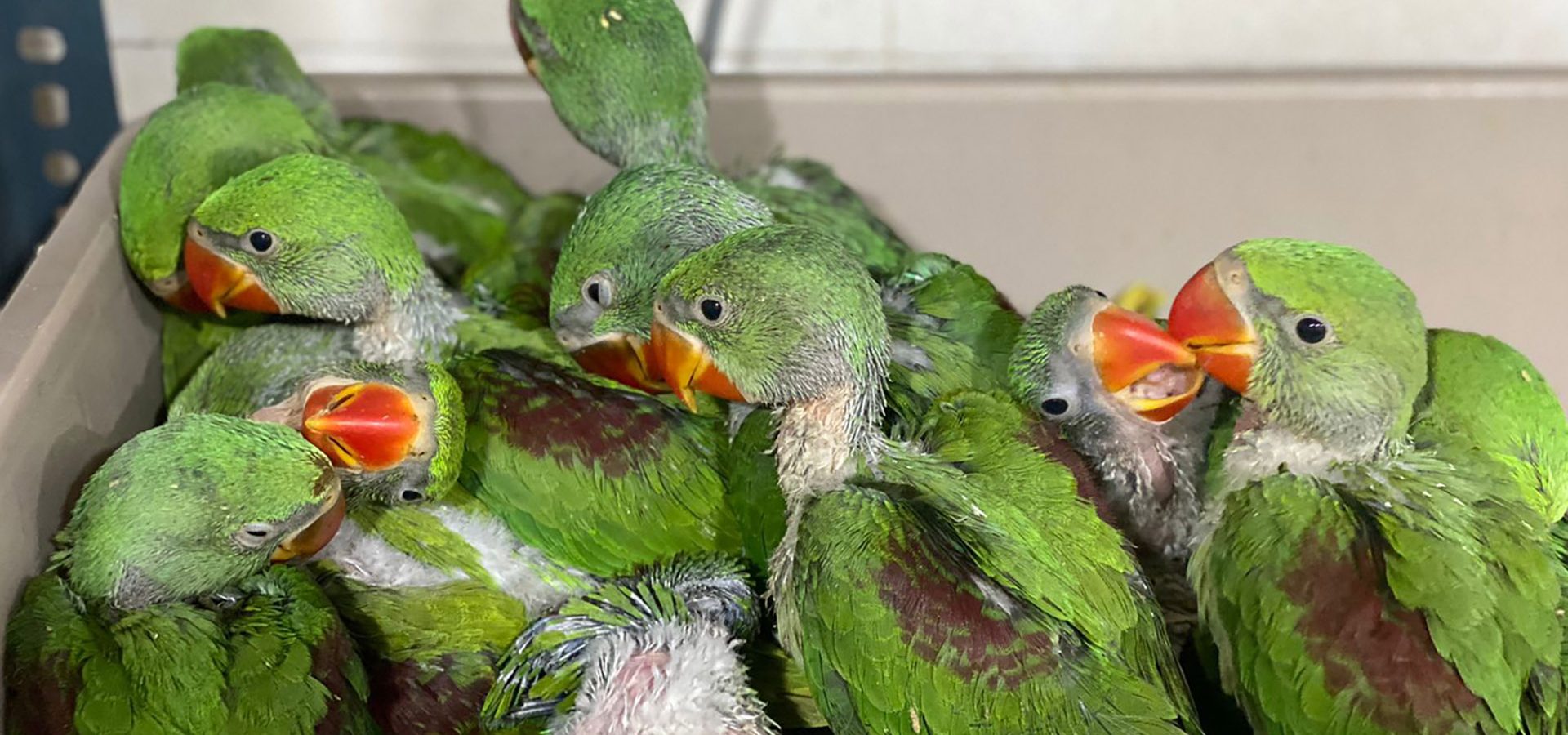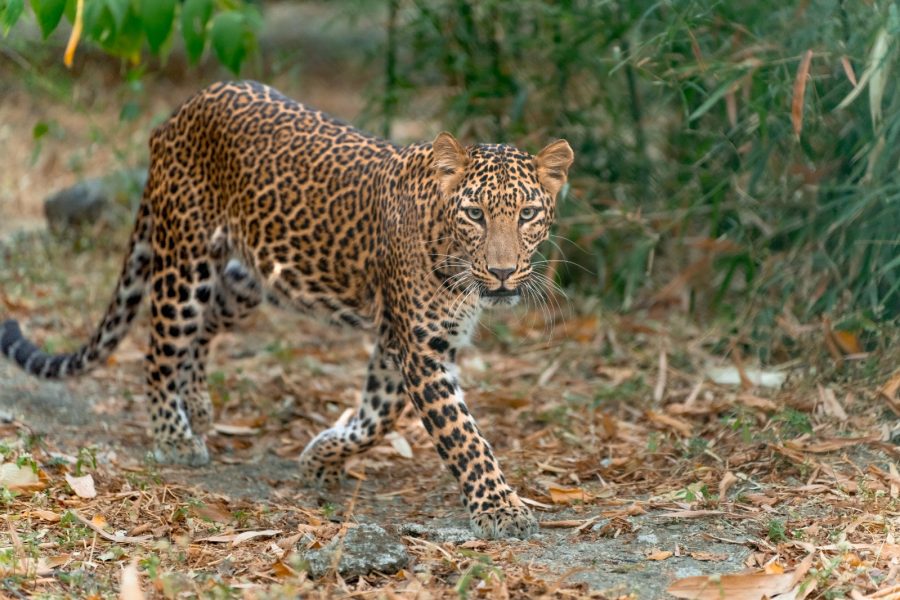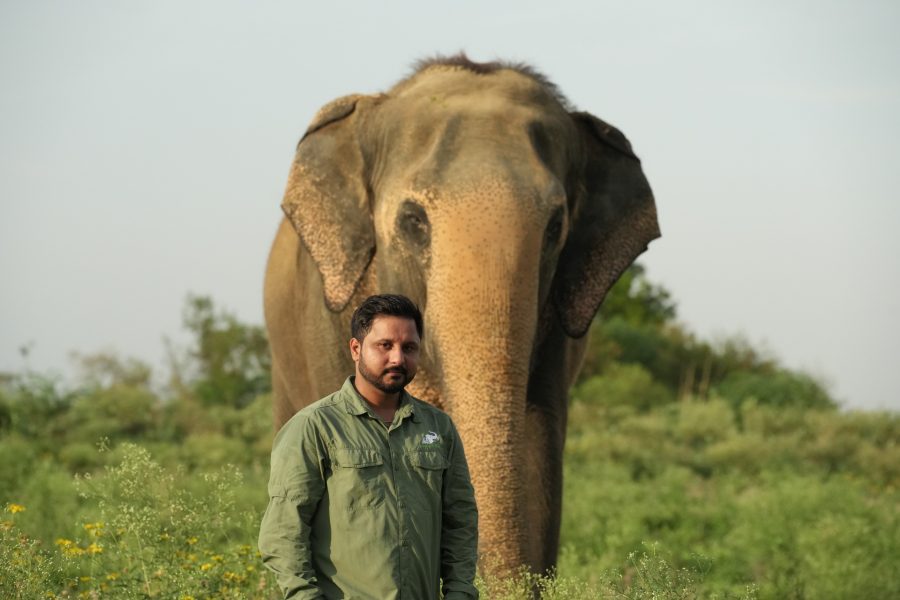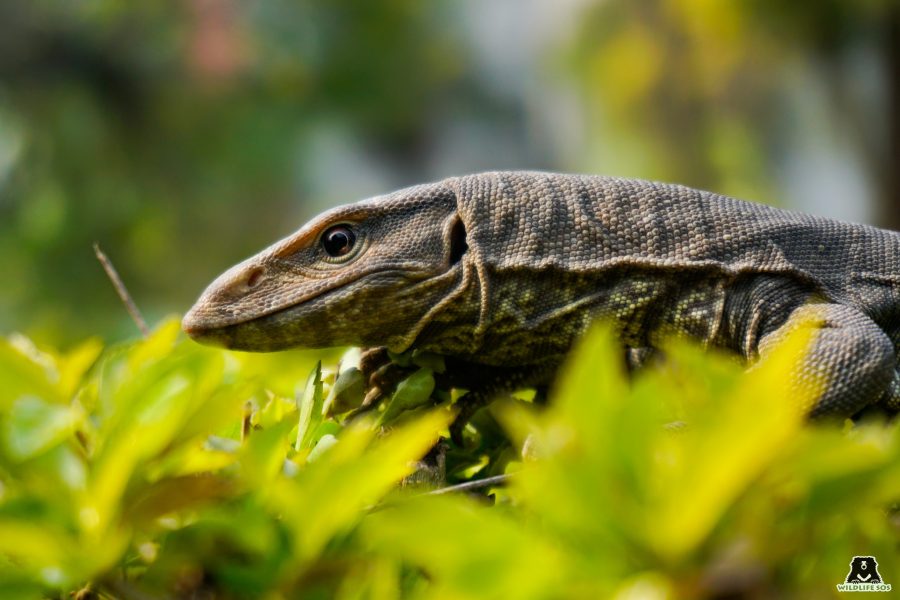Birds have long been touted as symbols of freedom. People often tell tales about their desire to “be as free as a bird,” referring to their ability to soar high above in the sky without a worry in the world. Ironically, the very freedom of the bird that we aspire to have, is being ripped away from these majestic creatures. Birds in India are increasingly becoming victims of illegal trade – captured, caged, and shackled for life. Despite the ban on trapping and trade of Indian wild birds in 1990-91, the illegal trade of birds continues to flourish.
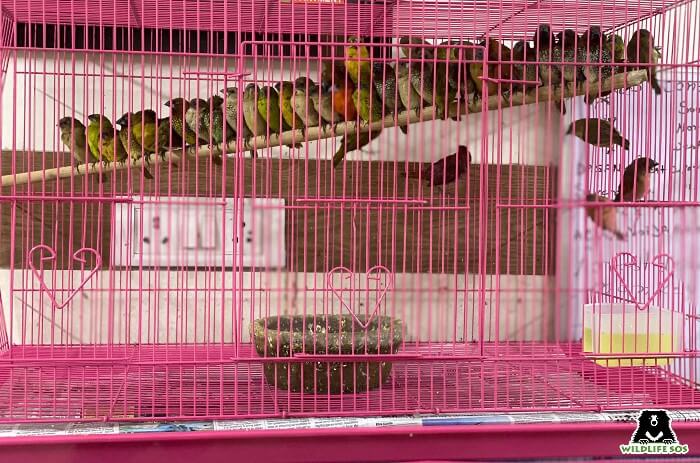
Such illegal trafficking reared its ugly head in the National Capital of India as over 1700 native birds were found crammed into suffocating cages in the Kabutar (Pigeon) Market near Jama Masjid, Delhi, on Wednesday. Various species such as Alexandrine, Rose-ringed, and Plum-headed parakeets along with hundreds of munias (spice-finch), two hill mynas, and buntings were found within the grasps of these illegal poachers. A total of 1741birds, including 500 chicks were snatched from their natural environments and robbed of their freedom to fly.
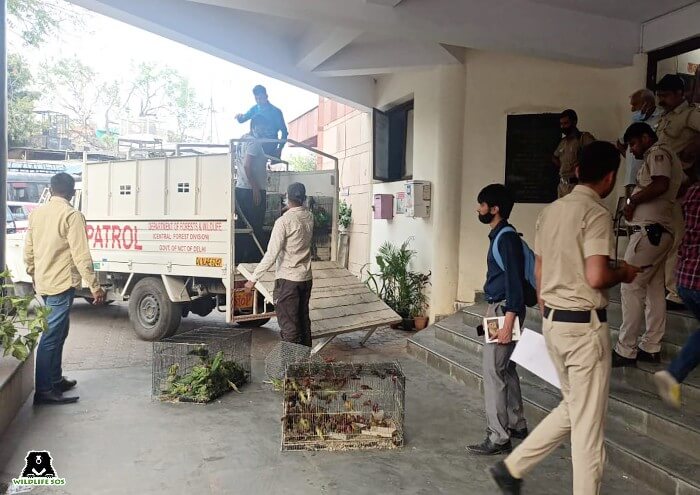
Through a complaint filed by PETA India under various sections of The Prevention of Cruelty to Animals Act (PCA), 1960, and the Indian Penal Code, 1860, a raid was carried out by the Delhi Police who put a halt to this criminal activity. The Forest Department took custody of the birds, and as per the direction of the Deputy Conservator of Forests, the rescued birds, including adults, chicks, and juveniles, have been placed under the care of Wildlife SOS. A report has also been filed under relevant sections of the Wild Life (Protection) Act (WPA),1972. Hill mynas are protected under Schedule I, while parakeets and munias fall under Schedule IV of the WPA.
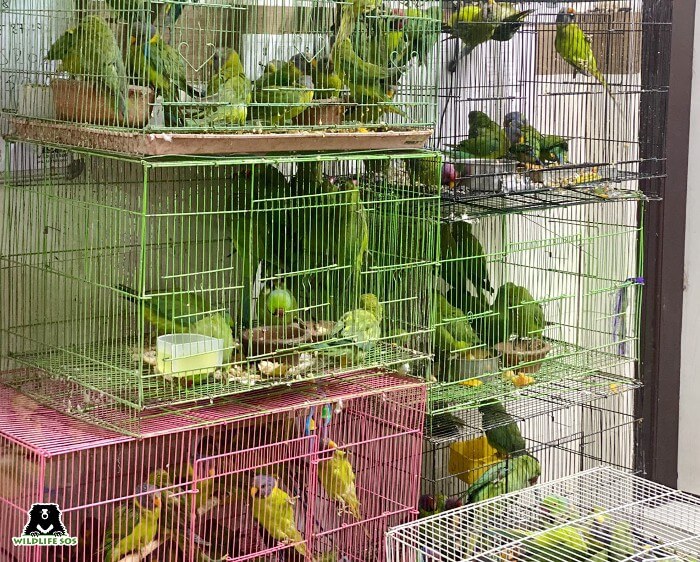
Numerous of the birds seized are not naturally found in the National Capital Region. Thus, the Wildlife SOS team gauged that they had been smuggled from different states and traversed across several borders until they reached Delhi. Further, most of the birds seized were found with severe dehydration, eye infections, wing damage, and other injuries. The munias had also been dyed in bright colors using harmful chemicals to encourage sales. Recognizing the trauma the birds had undergone, our team immediately got to work to ensure their well-being. Currently housed at the Wildlife SOS Transit Facility, the birds are regularly being fed and hydrated. Adult birds have been shifted into more spacious and hygienic cages to ensure they experienced minimal stress. Our team is carefully monitoring every bird to ensure all of their needs are met.
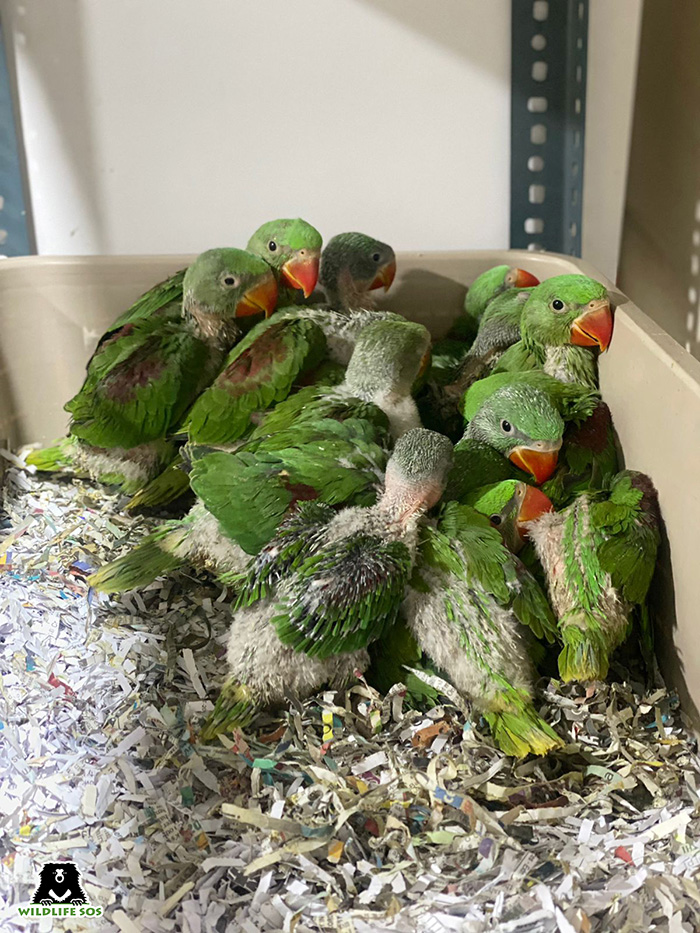
What concerns our team most, however, are the over 500 baby chicks. Often, three to four weeks old parakeets are captured and crammed into containers for trade. Most times, these chicks die en-route, never even making it to the destination. Thus, our team is hard at work to ensure each chick survives. The youngest birds have been put in cages with temperature control to ensure they have the exact temperature needed to stay fit. Syringes are being used to feed baby birds to ensure they receive the appropriate amount and type of food. Our team even made soft beds made out of shredded paper to help the chicks feel relaxed.
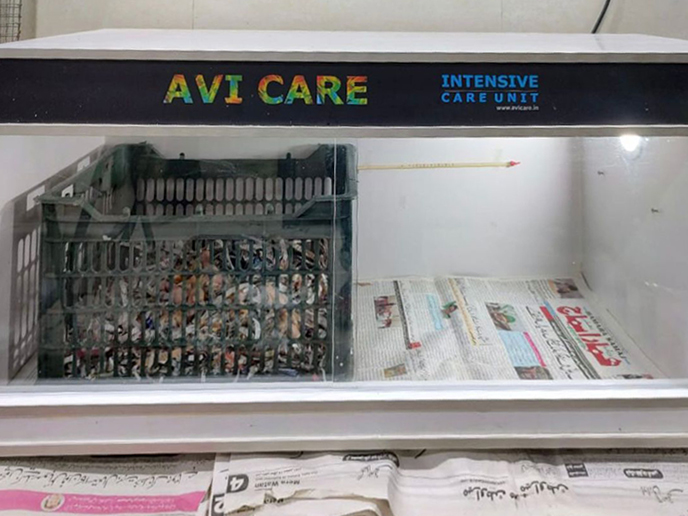
Our team hopes all of the birds can be released back into the natural habitat once deemed fit. The release of the birds is being carried out in multiple phases. In the first phase, a few birds deemed fit have already been released back into their natural environments.

The seizure of these birds reveals only the tip of a flourishing underworld dedicated to the illegal trade of birds. Of the 12 native species of parakeets, the Rose-ringed parakeets, Alexandrine parakeets, and Plum-headed parakeets are three of the most traded birds in the country. These birds are commonly kept as pets in Indian households by those unaware of the brutality involved in capturing these birds. The Kabutar Market of Jama Masjid has also long been a hotspot for the sale of birds where under the protection of the pet trade rare and endangered species are smuggled across the country, due to ever-increasing demand. Such demand increases during major festivals like Holi and even Diwali. In November of 2021, Wildlife SOS in collaboration with the Gujarat Society for Prevention of Cruelty to Animals (GSPCA) rescued eight Indian Eagle Owls being trafficked for use in occult practices that occur during the Diwali season.
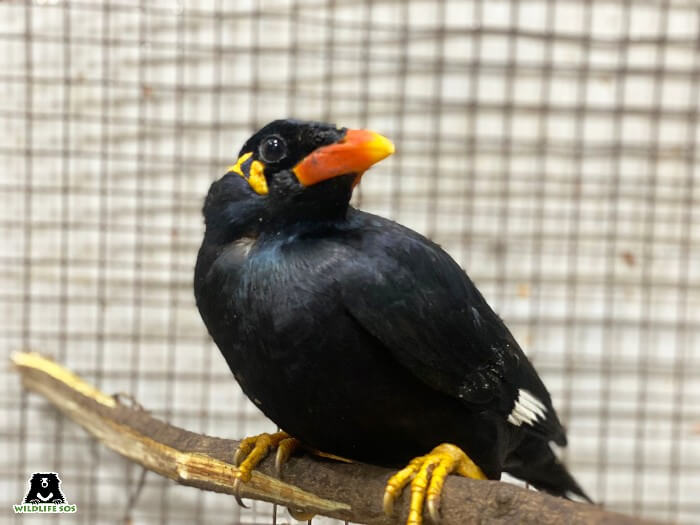
As Wildlife SOS cares for the seized birds, we hope this incident can shed light on the brutal capturing and trade of birds. You can help save India’s avian population by contributing towards Wildlife conservation. Click HERE to make India’s skies a haven for birds.

